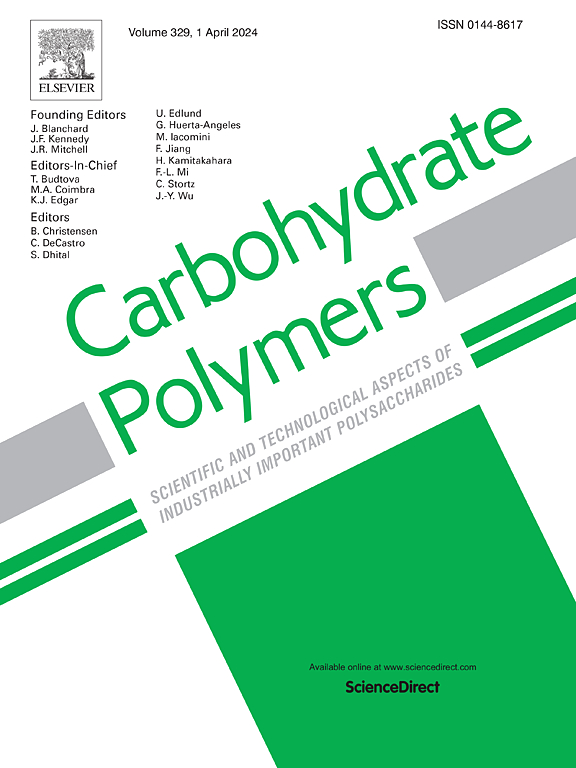Unlocking the potential of deep eutectic solvents for sustainable pectin extraction
IF 10.7
1区 化学
Q1 CHEMISTRY, APPLIED
引用次数: 0
Abstract
Pectin is a heterogeneous polysaccharide mainly found in the cell walls of plants. Owing to its unique biological and functional properties, pectin is widely used across various industrial sectors, including the food, pharmaceutical, and cosmetic industries. The conventional method of industrially extracting pectin from plant materials is to use prolonged heating under highly acidic conditions. This process poses several drawbacks, including system corrosion, high energy consumption, and environmental concerns. This review article evaluates the potential application of deep eutectic solvents (DESs) as green alternatives to conventional solvents for pectin extraction, due to their exceptional extraction efficiency, minimal toxicity, low cost, eco-friendliness, and reusability. The classification, synthesis procedures, and physicochemical properties of DESs are reviewed. Additionally, the application of DESs for pectin extraction is discussed, both alone and in combination with other emerging extraction techniques, such as ultrasonic, microwave or high-pressure methods. Finally, the advantages and disadvantages of using DESs for pectin extraction are discussed. DESs has already shown considerable potential for the sustainable extraction of pectin from various plant sources, while preserving its functional attributes. The wide range of substances available for preparing DESs enables their extraction properties to be tailored for particular applications, allowing them to meet the specific needs for pectin extraction. DESs can be used in combination with other emerging extraction technologies to improve its pectin extraction efficiency. Therefore, the optimization of DES-assisted extraction techniques may lead to new sustainable methods for isolating pectin.

解锁深层共晶溶剂可持续提取果胶的潜力
果胶是一种主要存在于植物细胞壁中的多相多糖。由于其独特的生物学和功能特性,果胶被广泛应用于各种工业部门,包括食品、制药和化妆品行业。从植物原料中提取果胶的传统工业方法是在高酸性条件下长时间加热。这个过程有几个缺点,包括系统腐蚀、高能耗和环境问题。深层共晶溶剂(DESs)具有萃取效率高、毒性小、成本低、生态友好、可重复使用等优点,具有替代传统溶剂提取果胶的潜力。综述了DESs的分类、合成方法及理化性质。此外,还讨论了DESs在果胶提取中的应用,包括单独提取和与其他新兴提取技术(如超声波、微波或高压方法)的结合。最后讨论了DESs提取果胶的优缺点。DESs已经显示出相当大的潜力,可以从各种植物来源中可持续提取果胶,同时保持其功能属性。可用于制备DESs的各种物质使其提取特性能够针对特定应用进行定制,使其能够满足果胶提取的特定需求。DESs可与其他新兴的提取技术相结合,提高其提取果胶的效率。因此,对des辅助提取工艺的优化可能为分离果胶提供新的可持续方法。
本文章由计算机程序翻译,如有差异,请以英文原文为准。
求助全文
约1分钟内获得全文
求助全文
来源期刊

Carbohydrate Polymers
化学-高分子科学
CiteScore
22.40
自引率
8.00%
发文量
1286
审稿时长
47 days
期刊介绍:
Carbohydrate Polymers stands as a prominent journal in the glycoscience field, dedicated to exploring and harnessing the potential of polysaccharides with applications spanning bioenergy, bioplastics, biomaterials, biorefining, chemistry, drug delivery, food, health, nanotechnology, packaging, paper, pharmaceuticals, medicine, oil recovery, textiles, tissue engineering, wood, and various aspects of glycoscience.
The journal emphasizes the central role of well-characterized carbohydrate polymers, highlighting their significance as the primary focus rather than a peripheral topic. Each paper must prominently feature at least one named carbohydrate polymer, evident in both citation and title, with a commitment to innovative research that advances scientific knowledge.
 求助内容:
求助内容: 应助结果提醒方式:
应助结果提醒方式:


